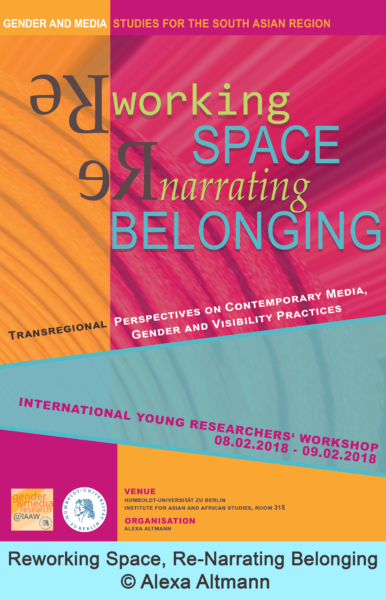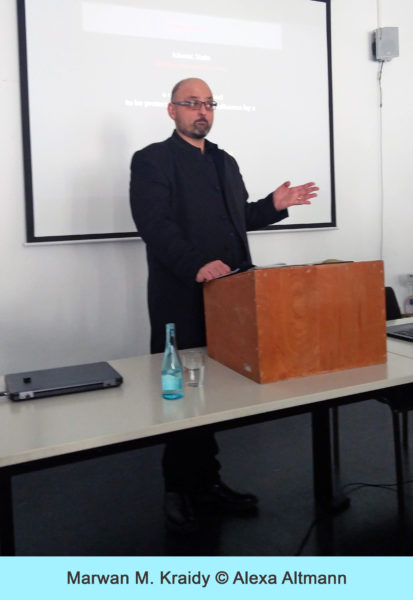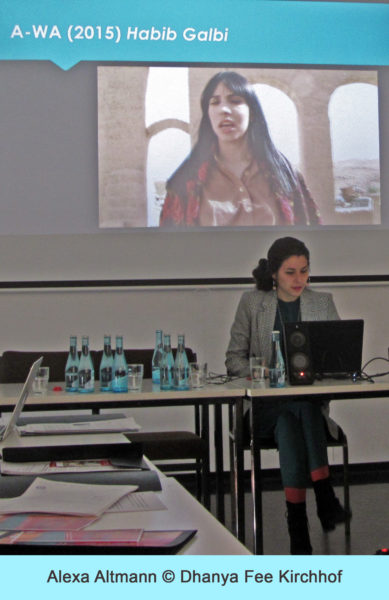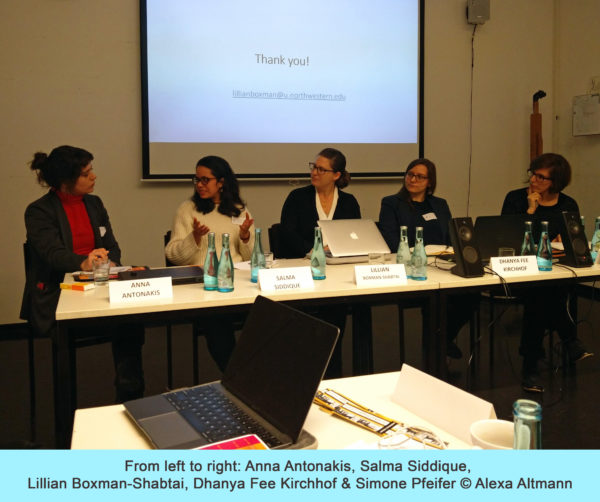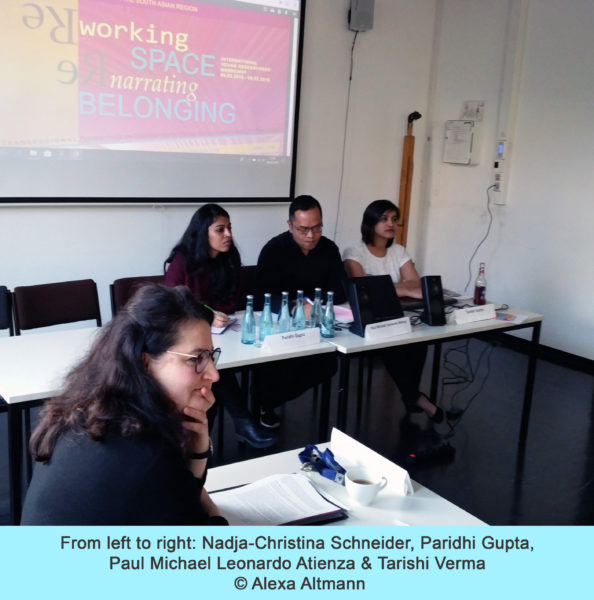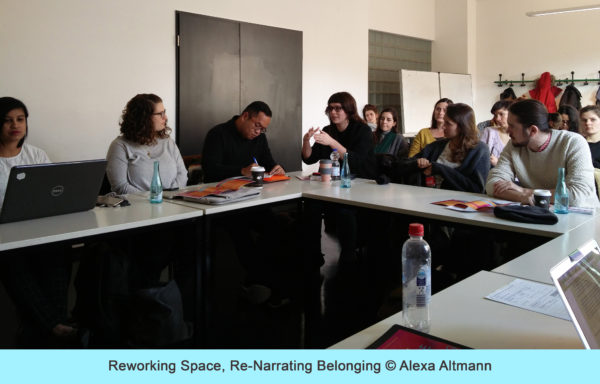Seonyoung Seo und Sebastian Sons
Im Rahmen der von der Humboldt-Universität zu Berlin in Zusammenarbeit mit der University of Singapore vom 24.-26. Mai 2016 organisierten Konferenz „Diversity Encounters: Intersectional and post-colonial perspectives“ präsentierte Sebastian Sons, Doktorand bei Frau Prof. Dr. Nadja-Christina Schneider, gemeinsam mit der Doktorandin Seonyoung Seo von der Universität aus Singapur Teile seiner Forschungsergebnisse. Beide nahmen an den so genannten „Trouble Shooting Labs“ teil, in denen jeweils ein Doktorand aus Deutschland sowie aus Singapur in intensiven Vorarbeiten Gemeinsamkeiten und Unterschiede ihrer Forschungsprojekte erarbeiteten und diskutierten. Vor allem methodische Herangehensweisen, theoriebezogene und empirische Herausforderungen und Erfahrungen wurden evaluiert. Während sich Sebastian in seiner Dissertation mit den Mediendiskursen um pakistanische Arbeitsmigrant_innen nach Saudi-Arabien beschäftigt, forscht Seonyoung zu nepalesischen Migrant_innen in Südkorea. In beiden Projekten nehmen der Zugang zu Eliten und der öffentliche Diskurs über das Phänomen Migration eine signifikante Bedeutung ein, wenngleich sich die methodische Herangehensweise und die lokalen Gegebenheiten doch deutlich voneinander unterscheiden. Beide Studien widmen sich der zeitgenössischen Diskussion um Arbeitsmigration, die in den Projekten als historisch bedeutsame Form der Mobilität und der transkulturellen Verknüpfung in Asien und dem Nahen und Mittleren Osten definiert wird. Basierend auf dieser Ausgangsthese analysieren beide Wissenschaftler die Auswirkungen der Migrationssysteme in den Aufnahmeländern Korea und Saudi-Arabien sowie in den Entsendeländern Nepal und Pakistan.
Daraus ergaben sich in der Diskussion einige signifikante Überschneidungen und Unterschiede in der Forschungsarbeit: Beide Projekte widmen sich Fragen nach Identitätskonstruktionen von Diasporagesellschaften, transnationalen und transkulturellen Netzwerken zwischen Empfänger- und Entsendeländern sowie dem Einfluss von Migration auf die jeweiligen Heimatländer. Während Sebastian die strategischen Ansätze, die Inhalte sowie die Debatten der jeweiligen Medienakteure über Migration wie Vertreter der Zivilgesellschaft und Journalisten analysiert, vertieft sich Seonyoung in ihrer Arbeit mehr darauf, die Selbstdefinition der nepalesischen Migrant_innen in Korea herauszuarbeiten und beschäftigt sich mit deren multiplen transnationalen Zugehörigkeiten, ihren unterschiedlichen kulturellen Affinitäten und ihren daraus erwachsenen hybriden Identitäten. Damit tragen beide Wissenschaftler zur akademischen Diskussion um sozialen Wandel in Zeiten der Globalisierung bei, in denen die Auffassung des Containerdenkens in nationalstaatlichen Kontexten zunehmend obsolet geworden ist.
Für beide Nachwuchswissenschaftler entwickelte sich aus den vorbereitenden Gesprächen und der gemeinsamen Präsentation eine intensive und konstruktive Diskussion, in der wesentliche Forschungsparallelen bei Fragen der Netzwerkbildung, Interviewführung und Öffentlichkeit trotz der verschiedenen regionalen Kontexte festgestellt wurden. Seonyoung und Sebastian empfanden die Mitwirkung am Trouble Shooting Lab als eine neue Forschungserfahrung, um die Kontakte mit anderen Wissenschaftlern zu intensivieren, neue Perspektiven zu erlangen und sich über Gemeinsamkeiten und Unterschiede in der täglichen Arbeit auszutauschen.
von Bettina Gräf
The three-day international conference was organised by Nadja-Christina Schneider (Humboldt University Berlin) and hosted by the Deutsche-Forschungsgemeinschaft (DFG) research network “Medialisation and Social Change Outside Europe: South Asia, Southeast Asia and the Arab-Speaking Region” (2011–2014). It took place in November 2013 at the Institute for Asian and African Studies at Humboldt University Berlin and was composed of five thematic panels, three keynote lectures, a poster presentation, a film screening and a final discussion round. Encompassing four regions, the panels dealt with media art and documentary filmmaking (1.), the political economy of the media (2.), changing media and religious renegotiations (3.), gender and changing identities (4.) and converging media and changing practices (5.) …
Read full report online:
http://hsozkult.geschichte.hu-berlin.de/index.asp?pn=tagungsberichte&id=5295
Find more informations about the conference online:



